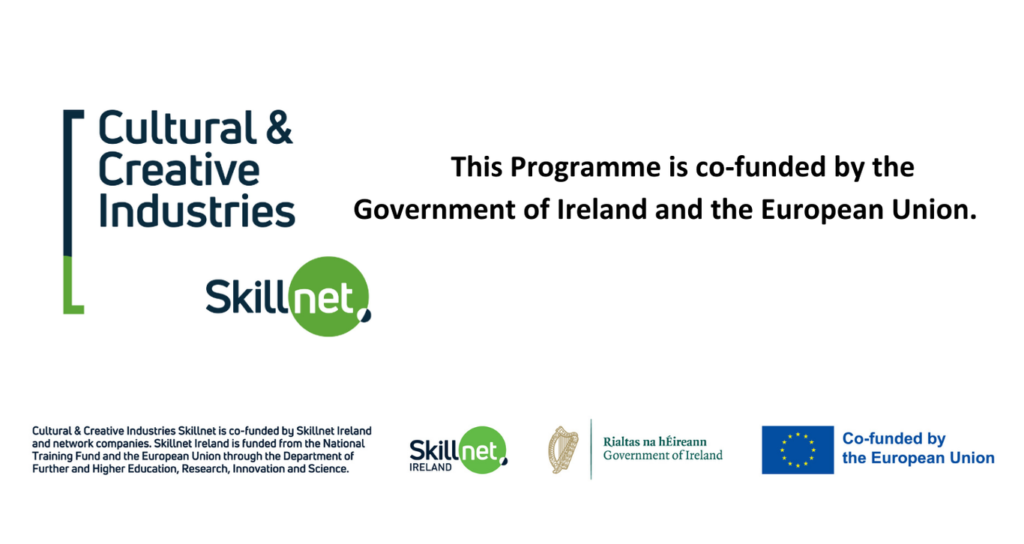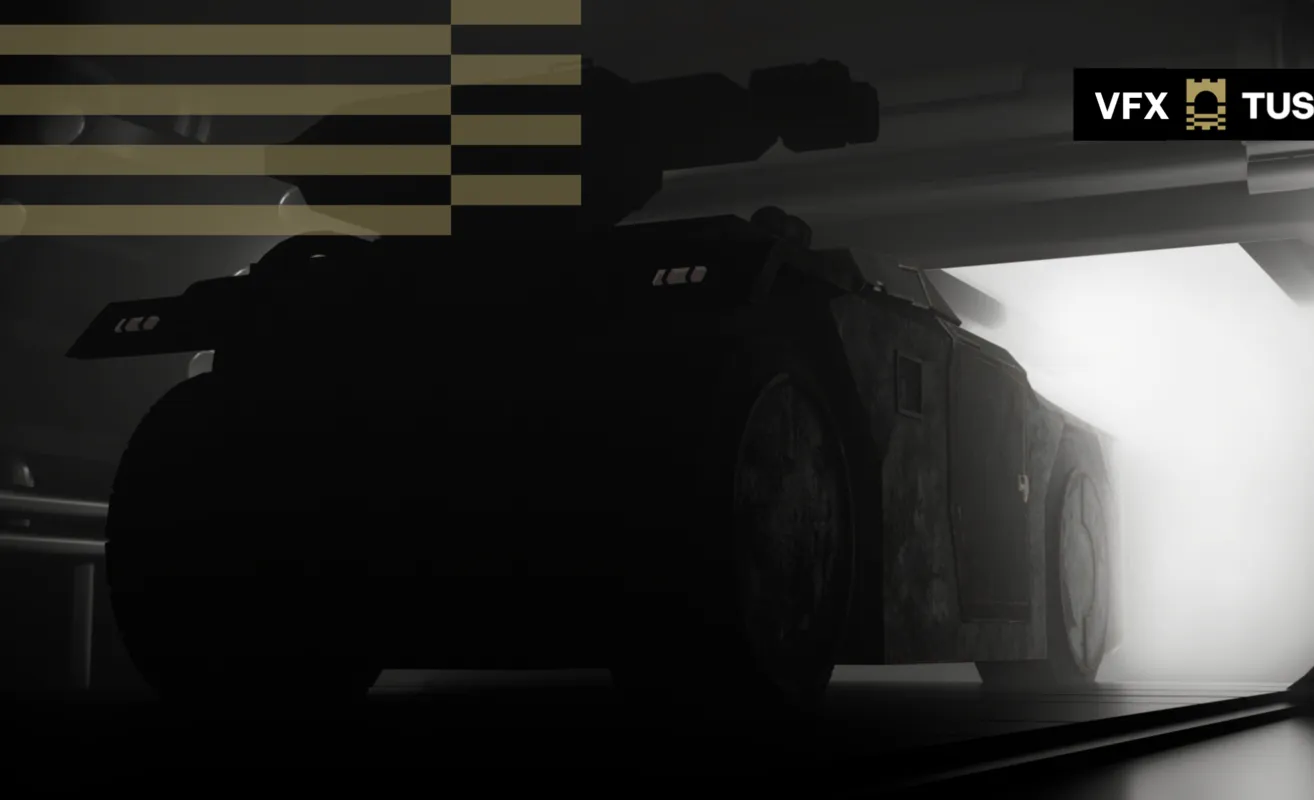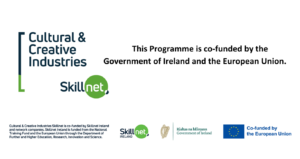
Courses
Admissions & Support
Course Search
Courses
Admissions & Support
Course Search
Our Services
Our Community
Course Search
Professional Services
Status: Register Your Interest
Location: Online
weeks: 12
Fees: €1,400* See FEES Section below for Skillnet Funding

This specialised programme addresses the growing need for skilled technical artists in the Film and TV and Game industries. Designed for those looking to bridge creative and technical aspects of production, the course offers focused training in streamlining workflows, managing large-scale data, and problem-solving within complex production environments. This programme is designed to provide students with a comprehensive and industry-relevant education in technical art, covering a wide range of topics essential for success in VFX, CG Animation and game development.
With hands-on experience in industry-standard tools and techniques, students will develop the expertise to support efficient, high-quality production pipelines. This award aims to prepare graduates for immediate contributions in professional settings, equipping them with understanding of how and why technical art skillsets are vital to bringing ambitious artistic visions to life.
This programme is tailored for individuals with a passion for the dynamic field of technical art and a strong desire to master industry-standard tools and techniques. Ideal candidates will possess a blend of artistic sensibility, technical aptitude, and a keen interest in the intersection of creativity and technology.
Applicants should typically hold a Level 8 Honours Degree (or equivalent) in a related field, such as Animation, Film Production, Game Design, Computer Graphics, or Computer Science.
While not mandatory, some prior experience in the VFX, Animation or Games industry, or a related creative field is desirable. This could include internships, freelance work, personal projects, or active involvement in relevant extracurricular activities.
We welcome applications from individuals who may not possess the specified academic qualifications but can demonstrate significant relevant experience and skills. Recognition of Prior Learning (RPL) applications will be assessed on a case-by-case basis, in accordance with RPL policy, considering the nature and duration of prior learning and its alignment with the programme’s learning outcomes.
ENGLISH LANGUAGE: Applicants who do not have English as their first language must ensure they satisfy English Language requirements. For entry to undergraduate courses, a score of 5.5 in an IELTS or equivalent exam is required. For postgraduate courses, a score of 6.0 in an IELTS or equivalent exam is required. It is the responsibility of the applicant to ensure their English proficiency meets these requirements.
Technical Art fundamentals
We look at how both visual effects and games studios currently handles tasks and data as it moves through their pipelines. This can be examined through case studies of how challenges are tackled on individual productions. Consideration is given to how to organise and automate a smaller part of an artist’s workflow.
Technical Art Techniques
Learners learn how to identify and automate tasks within industry standard software such as Maya, Unity, Unreal or Houdini.
Scripting and Technical Art Tools
Developing proficiency in scripting languages like Python to automate tasks, create custom tools, and streamline workflows.
Pipeline Development and Optimization
Understanding the principles of efficient pipeline design, implementing best practices for asset management, version control, and optimization.
Industry Practices and Collaboration
Learning about professional workflows, communication protocols, and collaboration strategies employed in VFX and game development studios.
Materials & Equipment
Materials: while the course is focused on producing digital content some pencils and a sketchbook can be useful for developing early visual development.
Equipment: while students will primarily use their own computers, the programme will provide access to remote workstations equipped with industry-standard software packages, including Autodesk Maya, Foundry Nuke, Houdini, and Unreal Engine. This access ensures that all students have the necessary tools to complete their coursework regardless of their personal computer setup.
Communication and Participation
In addition to Moodle, the programme will leverage Microsoft Teams to foster communication and collaboration. Teams will be used for live lectures, Q&A sessions, group projects, and one-on-one consultations with lecturers. This blended approach ensures a dynamic and engaging learning experience for all students
The proposed delivery schedule is subject to change.
Modules are to be delivered over 12 weeks in an online learning format.
1 evening per week (Thursday) x 3 hours per evening x 12 weeks
Each 5 credits will normally equate to approximately 100 Total Learning Hours. Total Learning Hours includes the time you spend in class (lectures, tutorials, practical elements) and the time you spend completing work outside of college. The balance between these two varies by discipline, and by level of study. You should bear in mind that the workload will increase at particular times e.g. when assignments are due.
This programme employs a variety of assessment methods to gauge student learning and provide opportunities for them to demonstrate their understanding and application of key concepts and technical skills. Assessment strategies include:
Certificate in Technical Art and Pipeline (Special Purpose Award – Level 9, 10 ECTS)
€1,400*
This programme secured part funding through Cultural & Creative Industries Skillnet in 2024 / 25. In order to qualify for the reduced fee of €500 i.e. full course fee of €1,400 minus Skillnet discount of €900 you must:
Once your application has been successful and you accept TUS’s offer of a place on the programme you will be provided with a registration link to establish your eligibility with Cultural & Creative Industries Skillnet and secure the discounted rate.
For the link to the Cultural and Creative Industries Skillnet page please click here.

tbc
Places are allocated on a first come first served basis. Course will be closed once the maximum number of applicants is reached. Courses run subject to viable numbers.